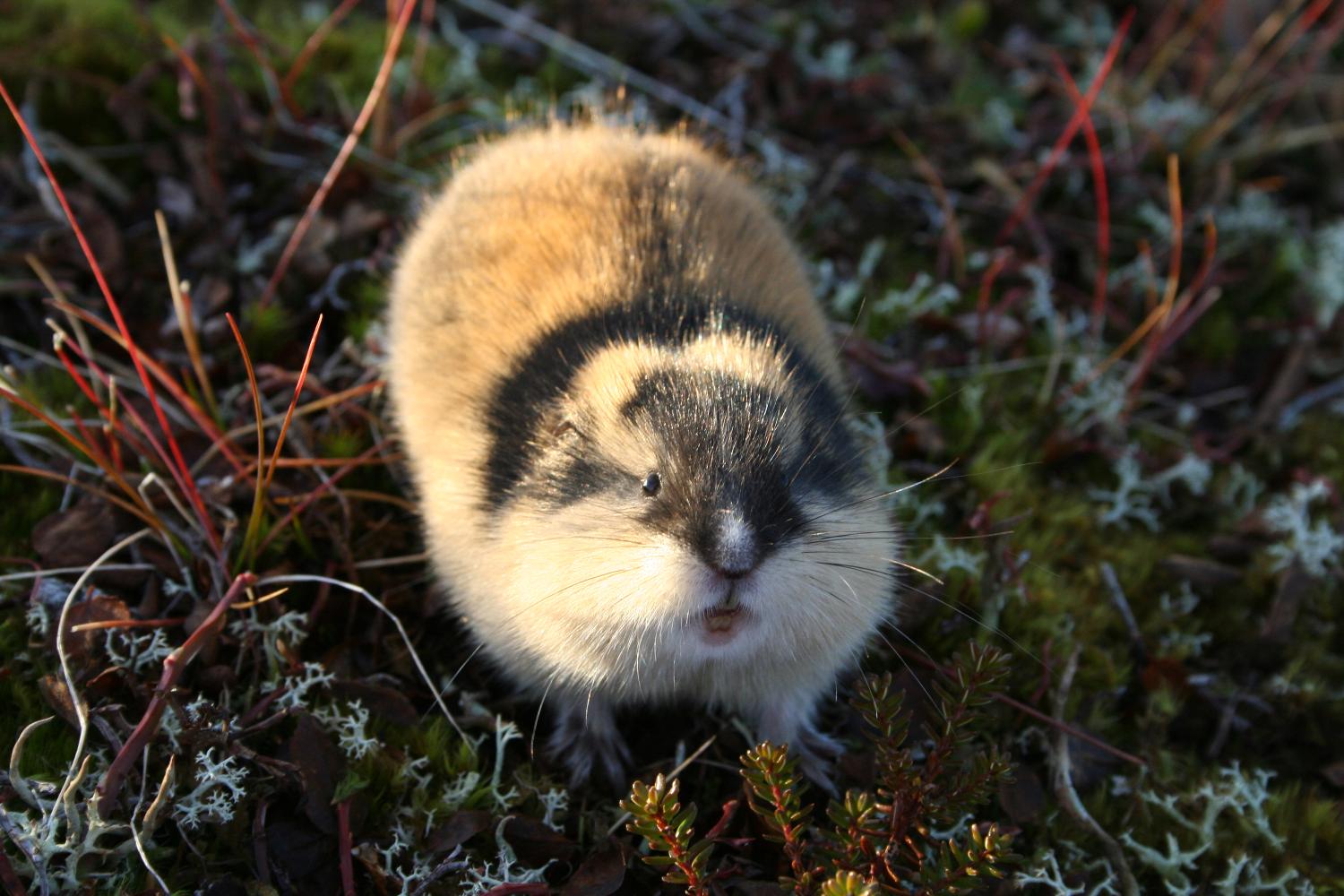Are you interested in exploring fundamental ecological questions? Do you want to know what counts as evidence to develop and implement sustainable management of populations or ecosystems, or apply the best tools available for monitoring and predicting impacts of climate change – or human activities on northern nature? Or perhaps your main desire is to learn about what determines patterns and processes within boreal and arctic ecosystems or explore solutions for ecosystem-based management. Do you want to acquire highly relevant competence for a career within management or research in an era of profound pressures on species and ecosystems? Then this discipline is for you.
This study programme requires compulsory attendance to the introductory meeting.Admission requires:
- bachelor’s degree (180 ECTS) or an equivalent degree following a programme of study of minimum 3 years.
- a minimum of 80 ECTS in the bachelor's degree must include a specialization in biological topics [i.e., biodiversity (zoology/botany), ecology, cell- and molecular biology, microbiology, physiology (animal/plant), biochemistry and bioinformatics].
- a minimum grade average comparable to a Norwegian C (3,0) in the ECTS scale. The average grade is calcualted from the entire bachelore´s degree.
- proof of English language proficiency. (Applicants with education from non-Nordic countries. You will find more information of English language requirements here.)
Applicants with a degree in Agricultural, Fisheries and Aquaculture studies, Biomedical laboratory sciences ("Bioingeniør"), or Bachelor of Pharmacy, Medicine or Dentistry do not fulfil the admission requirements.
How to apply for admission to UiT? Read more here
Non-EU students must be prepared to pay tuition fees, more information here
Non-EU/EEA applicants: 2080
EU/EEA + Swiss applicants: 7114
Nordic applicants: 6024
Program description
A specialization in Northern populations and ecosystems provides insight into general ecological theories, analytical approaches and tools for understanding, analysing and managing populations, food webs and ecosystems. Students will work with empirical data collected in the field and typically use novel technologies and/or advanced data analyses to understand ecological patterns and processes. MSc projects are offered in a broad range of topics, including animal behavior, health and diseases, wildlife ecology, plant ecology, theoretical ecology and evolution, ecosystem science and management, and the impacts of climate change on northern ecosystems. A primary focus is placed on arctic-alpine tundra and boreal forests. Projects are often conducted as part of larger research initiatives and in teamwork. Many of the projects are connected to the Climate-ecological Observatory for Arctic Tundra (COAT), and extensive collaboration is carried out with partners within the Fram Centre.
Students will be an integral part of the Northern Populations and Ecosystems Rearch Group, and are expected to participate actively.
Learning outcomes
As a students in Northern Populations and Ecosystems you will gain advanced knowledge in Arctic terrestrial ecosystem ecology, environmental monitoring and management, such as plant ecology, animal ecology, ecosystem ecology, environmental monitoring designs and analysis, ecosystem-based management.
You will learn to use relevant analytical methods including both theoretical and statistical approaches to issues relevant for understanding and managing Arctic terrestrial ecosystems.
Job prospectives
The Master’s degree in Biology will allow you to qualify for different career paths and prepare you to step into a professional role or to apply for a PhD.
A Master of Science degree in Biology will prepare you for a wide range of jobs, in both public and private sectors, including research, resource and nature management, administration, consulting and the teaching profession.
The master thesis can play an important role to establish your domain of expertise and to showcase acquired technical and soft skills. Also, it can be very important in building scientific and professional network, that will be a support in your future job search.
Degree Name
Master's of Science in Biology.Access to further studies
On successful completion of the degree programme, students may be qualified for admission to a PhD-programme in Biology at the UiT or elsewhere.
Study plan
Language of instruction
The language of instruction and all syllabus material is English.
Teaching and assessment
Several teaching and assessment methods are employed, including lectures, seminars, laboratory work, computer lab and field courses. These will vary from course to course.
Course examinations may be oral or written examinations, assessments of project work/ lab reports/field reports, often in combination.
Supervision of the project work that leads to the writing of the Master`s thesis will be given by faculty staff, sometimes in co-operation with an external supervisor.
Students can undertake periods of studying at The University Centre at Svalbard (UNIS).
International exchange during an entire semester is not possible in the first year of studies due to obligatory courses.
Stays abroad can take place as part of a master project in the third and fourth semester. Please consult the program study advisor for more information.
Destinations for studies abroad
Saga Svavarsdottir
SeniorrådgiverVil du vite hvordan det er å være student ved UiT? Følg @uitstudent på Instagram eller TikTok, hvor studenter deler fra livet på universitetet. Her får du praktiske tips om studier og studentliv, nyttig informasjon om campus og muligheten til å stille spørsmål om alt du lurer på.
For mer informasjon om studietilbud, forskning og muligheter direkte fra UiT, kan du følge @uitnorgesarktiske på Instagram eller TikTok. Her finner du offisielle oppdateringer og innsikt i hva universitetet har å tilby.



